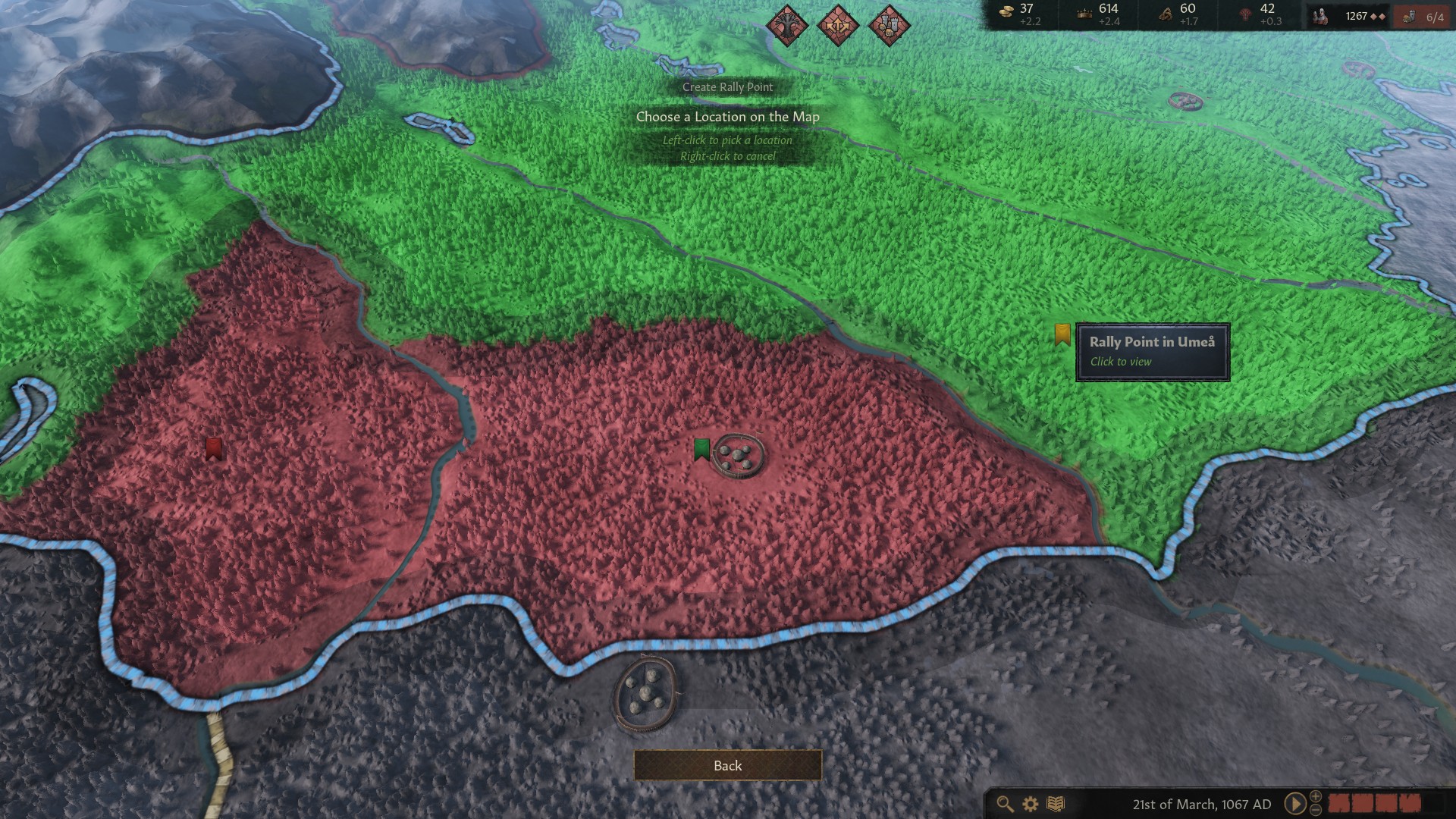
War in Crusader Kings 3 is not the only engine of conflict, but it is one of the most prominent. So in the event you find your enemies swarming on your kingdom's borders, this guide will teach you how to get your armies up to snuff.
Even if you plan to do a lot of your dealings in back rooms and bed chambers, you’ll at least need to know how to muster the banners and defend yourself when needed. So, with these CK3 war tips, marry well, manage your resources efficiently, and steal smartly so your forces come out on top.
Create strong alliances through marriage
Especially early on, one of the greatest tools you’ll have in warfare is marriage: Marrying your child to one of another ruler will form a military alliance. If you have attractive offspring and a knack for diplomacy, this can increase your might many times over.
Even a lowly count who has two powerful dukes as sons-in-law may be able to summon enough soldiers to his side to defeat a king. When searching for eligible betrothals, you can even sort the candidates by 'Alliance Power' by using the drop-down menu to see whose family has the largest army.
But remember you'll also be signing up to fight in your relatives’ wars; Marriage is a two-way street, at least when it comes to the battlefield. You’ll eventually need to strike a balance between marrying for alliances, prestige, or stats. Marrying only for political gain can cause you to lose out on spouses who might produce stronger, smarter, or more appealing offspring. If you have enough kids, indulge in a bit of each.

How rally points work
Raising your armies in Crusader Kings 3 requires at least one rally point. If you only have one, your available troops will spawn there. If you create more than one, they will spawn at the one closest to their home county. Understanding this is key, because if you create two rally points right next to each other on the very edge of your kingdom, most of your troops will probably go to the one closest to your kingdom’s most significant area, with only a tiny force spawning at the other.
Mostly, just the one rally point will do. You can place it closest to whomever you're attacking, and then split your army into smaller contingents to send them out where they’re needed. Rally points don’t work particularly well for splitting armies preemptively, due to the way the proximity rules work. Also, especially in a large kingdom, your whole army won’t arrive at the rally point at once. It will take some time—potentially months—to gather them all. So be careful about placing rally points on borders where the enemy could ambush you before your forces are fully gathered.
Keep up to date with the most important stories and the best deals, as picked by the PC Gamer team.
Ensure your armies have the supplies they need

CK3 guide: Beginner tips to get you started
CK3 console commands: All the cheats you need
CK3 Intrigue: Become a master of the dark arts
CK3 religion: Control your population through faith
CK3 mods: From tweaks to total conversions
Armies in Crusader Kings 3 can’t simply march around anywhere they like without consequences. Soldiers need to eat, after all, and every area on the map has a Supply Limit that represents how many soldiers can live off the land there.
Developed farming areas have high supply limits, allowing large and imposing armies to march right through. But a stretch of rocky hills in the middle of the desert will have a much lower limit, giving a logistical advantage to much smaller forces. An army over the Supply Limit of the area it’s marching through will start to consume its stored supplies, which can be seen on the army card. If those run out and you’re still over the supply limit, troops will start to die from starvation and disease.
Forts can also cause attrition. If you try to march past a fortified area without besieging it, you'll lose many troops from inadequate supply lines—but this is easy to see on the map. When you select a destination for an army, every location along their path marked with a skull represents somewhere they will start taking supply line attrition if they don’t stop to knock over that pesky fort first.
Raid the lands of your neighbors, if they'll let you
Certain cultures, religions, and government types let you raid the lands of your neighbors without actually declaring war on them. Most pagans and tribal rulers can do this, notably. Raiding will not allow you to take over any lands, but you can steal gold and accumulate prestige to enrich yourself and build your fearsome reputation. Only areas with a settlement can be raided, and clicking on them will tell you how much treasure is available. Once you've started raiding, you won’t be able to retreat until it's over, so be careful raiding powerful realms that may be able to raise their own armies and respond before you escape.
Each army can only carry a limited amount of loot, and raiding forces will still suffer from supply line attrition if they try to march past a fortified county, so you can’t just waltz into Paris and grab everything that’s not nailed down… unless you’re a viking. Certain cultures like the Norse get access to longships, which allow them to raid overseas and even sail up major rivers. This puts some rich and otherwise inaccessible targets in reach of your reavers, and can be a very effective way to accumulate some cash and credibility early on.
West African characters can also gain this ability with the West African Canoes innovation. Keep in mind that sending armies over water always costs some amount of gold. So while canoes or longships make this cheaper, ensure the voyage isn’t more expensive than what you haul back.
Len Hafer is a freelancer and lifelong PC gamer with a specialty in strategy, RPGs, horror, and survival games. A chance encounter with Warcraft 2: Tides of Darkness changed her life forever. Today, her favorites include the grand strategy games from Paradox Interactive like Crusader Kings and Europa Universalis, and thought-provoking, story-rich RPGs like Persona 5 and Disco Elysium. She also loves history, hiking in the mountains of Colorado, and heavy metal music.

